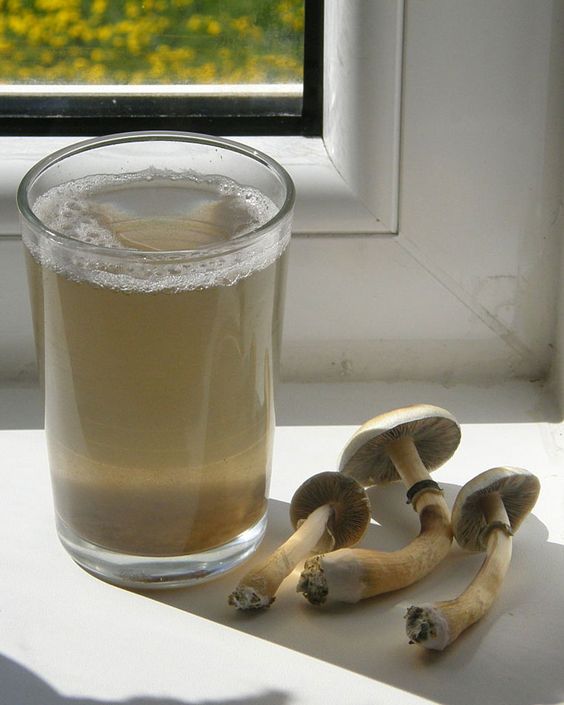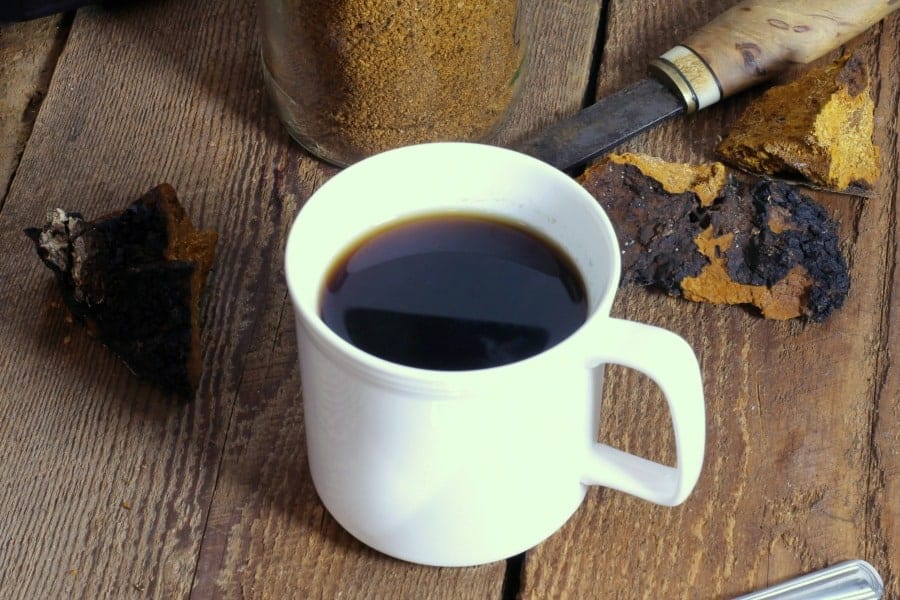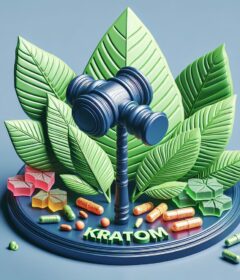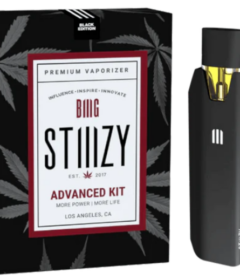It’s Time You Enjoyed A Cup of Mushroom Tea

Is mushroom tea on your morning menu yet? As we all look to stay healthy or improve our current health, there is any number of fad diets, supplements and drugs that are reputed to be wonder cure. Natural foods are sometimes forgotten in the search for a magic bullet to health.
And among healthy natural foods, mushrooms are not always at the top of the list. Fruits like blueberries that are high in Vitamin C and K, or super-vegetables like spinach that boast Vitamins A and K, are usually promoted in discussions about healthy diets.
But clinical studies continue to unearth the healthy advantages of mushrooms, which add flavor and texture to a variety of recipes.
There’s another way to add the benefits of mushrooms to your diet, even if you don’t like the taste or texture and don’t want to eat them: Mushroom tea.
The pros of drinking mushroom tea, such as Chaga mushroom tea, have long been touted in ancient Asian medicine. And now modern medicine is confirming the healthful effects of adding mushrooms to your daily routine.
So let’s take a look at everything you need to know about mushroom tea.
Why Drink Mushroom Tea?
There are a variety of reasons people like tea. Some prefer it to coffee, while others like herbal non-caffeinated teas. Some like a hot beverage on a cold day. For many, tea is a relaxant, whether it’s consumed in the afternoon during a work break or before bed as a sleep aid.
In fact, drinking tea has been considered healthy since ancient times. Now modern medicinal research is providing a scientific basis for the benefits of drinking tea, with different advantages depending on the tea. It’s also an inexpensive drink and is used as a popular beverage worldwide with the added bonus that its ingredients may provide medicinal benefits.
According to Penn Medicine, “a variety of teas may boost your immune system, fight off inflammation, and even ward off cancer and heart disease. While some brews provide more health advantages than others, there’s plenty of evidence that regularly drinking tea can have a lasting impact on your wellness.”
With mushroom tea, you can receive the soothing benefits of a warm drink on a cool day, or the relaxing effect of a “cuppa” tea that happens to be loaded with additional health benefits provided by mushrooms.
With some mushrooms, they’re better when used in tea. Any edible, non-poisonous mushrooms can be eaten whole, but some like Reishi and Chaga have a bitter taste, making them better suited to be steeped in tea.
And some people simply do not like the taste or texture of mushrooms, so turning them into a warm, relaxing beverage is a preferable way to gain their benefits.
RELATED: Lion’s Mane Benefits: A Guide To This Unique Mushroom
Specific Benefits of Mushroom Tea
If you’re still hesitant to try some tea, you might be wondering, what is mushroom tea good for?
Mushroom tea will allow you to receive the health benefits of mushrooms without having to eat them whole, raw or cooked. For those people who don’t like to eat mushrooms, that makes tea a great way to access boost to well-being. Even for those who do enjoy eating mushrooms, tea allows you to add more mushrooms to your diet.
Here are just a few of the specific benefits to be gained by drinking mushroom tea:
1. Mushrooms are a natural source of folate, a form of vitamin B9 used for deficiency and to prevent pregnancy complications. Folate or a folic acid supplement is also likely effective for:
- Lowering levels of homocysteine in the blood for those who suffer from high levels, a condition that has been linked to heart disease and stroke
- A decline in memory and thinking skills in older people
- Depression
- High blood pressure
- Stroke
2. Mushrooms are one of the few plant foods which contain ergosterol, a precursor to vitamin D2.
3. Studies have shown that adding dietary supplements of mushrooms to other treatments has provided benefits to breast cancer patients. Benefits include antiproliferative (slow the spread of cells) and immunomodulatory (support the immune reaction) effects on tumor cells, as well as improving the quality of life of these patients. The most recent studies have included supplementation with the order Agaricales mushrooms, such as oyster mushrooms and other medicinal fungi.
4. Medicinal mushrooms contain a complex sugar called beta-glucan. For instance, Maitake mushroom extract has been shown to stimulate various cells and factors in the immune system in laboratory and human studies. As well, studies in animals show that it slows the growth of certain tumors and lowers blood sugar levels. It’s also believed to help with diabetes, high cholesterol and hypertension.
5. Reishi or Lingzhi mushrooms are believed to help with adjustment to stress and anxiety, control blood glucose levels, and help boost the immune system. This is an ideal one for tea since it is more commonly ingested in a powder form than eaten whole. The powder is milled from the body of the mushroom and has a sweet flavor, making it a great addition to your everyday routine by stirring it into tea.
6. The Chaga mushroom is another worth drinking, as traditional medicine used its tea to treat gastric problems and other ailments such as tuberculosis, liver diseases and heart diseases. Modern medicinal studies are showing that Chaga has compounds that impact the immune system, with effects on mice displaying antitumor and antioxidant activity. Studies also show antiviral effects, and anti-inflammatory and analgesic properties.
7. Besides studies on specific mushrooms, in general, edible fungi contain many healthy compounds, such as carbohydrates and fibers, proteins and amino acids, lipids, vitamins, flavors and taste compounds, and antioxidants. Their amino acid composition is an important indicator of their nutritional value, flavor, and taste, and is close to that of soy proteins. The types and contents of amino acids lead to the unique flavor of mushrooms.
Are mushroom teas safe? The United States Department of Agriculture does warn that people should be careful with mushrooms gathered in the wild, in case they are poisonous. But mushrooms purchased in a retail store are safe to use. The United States Food and Drug Administration inspects mushrooms, although not all supplements and powders may be regulated.
Why Drink Mushroom Tea?
There are a variety of reasons people like tea. Some prefer it to coffee, while others like herbal non-caffeinated teas. Some like a hot beverage on a cold day. For many, tea is a relaxant, whether it’s consumed in the afternoon during a work break or before bed as a sleep aid.
In fact, drinking tea has been considered healthy since ancient times. Now modern medicinal research is providing a scientific basis for the benefits of drinking tea, with different advantages depending on the tea. It’s also an inexpensive drink and is used as a popular beverage worldwide with the added bonus that its ingredients may provide medicinal benefits.
According to Penn Medicine, “a variety of teas may boost your immune system, fight off inflammation, and even ward off cancer and heart disease. While some brews provide more health advantages than others, there’s plenty of evidence that regularly drinking tea can have a lasting impact on your wellness.”
With mushroom tea, you can receive the soothing benefits of a warm drink on a cool day, or the relaxing effect of a “cuppa” tea that happens to be loaded with additional health benefits provided by mushrooms.
With some mushrooms, they’re better when used in a tea. Any edible, non-poisonous mushrooms can be eaten whole, but some like Reishi and Chaga have a bitter taste, making them better suited to be steeped in tea.
And some people simply do not like the taste or texture of mushrooms, so turning them into a warm, relaxing beverage is a preferable way to gain their benefits.
RELATED: The Benefits Of Kava Root
Specific Benefits of Mushroom Tea
If you’re still hesitant to try some tea, you might be wondering, what is mushroom tea good for?
Mushroom tea will allow you to receive the health benefits of mushrooms without having to eat them whole, raw or cooked. For those people who don’t like to eat mushrooms, that makes tea a great way to access a boost to well-being. Even for those who do enjoy eating mushrooms, tea allows you to add more mushrooms to your diet.
Here are just a few of the specific benefits to be gained by drinking mushroom tea:
1. Mushrooms are a natural source of folate, a form of vitamin B9 used for deficiency and to prevent pregnancy complications. Folate or a folic acid supplement is also likely effective for:
- Lowering levels of homocysteine in the blood for those who suffer from high levels, a condition that has been linked to heart disease and stroke
- Decline in memory and thinking skills in older people
- Depression
- High blood pressure
- Stroke
2. Mushrooms are one of the few plant foods which contain ergosterol, a precursor to vitamin D2.
3. Studies have shown that adding dietary supplements of mushrooms to other treatments have provided benefits to breast cancer patients. Benefits include antiproliferative (slow the spread of cells) and immunomodulatory (support the immune reaction) effects on tumor cells, as well as improving the quality of life of these patients. The most recent studies have included supplementation with the order Agaricales mushrooms, such as oyster mushrooms and other medicinal fungi.
4. Medicinal mushrooms contain a complex sugar called beta-glucan. For instance, Maitake mushroom extract has been shown to stimulate various cells and factors in the immune system in laboratory and human studies. As well, studies in animals show that it slows the growth of certain tumors and lowers blood sugar levels. It’s also believed to help with diabetes, high cholesterol and hypertension.
5. Reishi or Lingzhi mushrooms are believed to help with adjustment to stress and anxiety, control blood glucose levels, and help boost the immune system. This is an ideal one for tea, since it is more commonly ingested in a powder form than eaten whole. The powder is milled from the body of the mushroom and has a sweet flavor, making it a great addition to your everyday routine by stirring it into tea.
6. The Chaga mushroom is another worth drinking, as traditional medicine used its tea to treat gastric problems and other ailments such as tuberculosis, liver diseases and heart diseases. Modern medicinal studies are showing the Chaga has compounds that impact the immune system, with effects on mice displaying antitumor and antioxidant activity. Studies also show antiviral effects, and anti-inflammatory and analgesic properties.
7. Besides studies on specific mushrooms, in general the edible fungi contain many healthy compounds, such as carbohydrate and fibers, proteins and amino acids, lipids, vitamins, flavors and taste compounds, and antioxidants. Their amino acid composition is an important indicator of their nutritional value, flavor, and taste, and is close to that of soy proteins. The types and contents of amino acids lead to the unique flavor of mushrooms.
Are mushroom teas safe? The United States Department of Agriculture does warn that people should be careful with mushrooms gathered in the wild, in case they are poisonous. But mushrooms purchased in a retail store are safe to use. The United States Food and Drug Administration inspects mushrooms, although not all supplements and powders may be regulated.
What’s A Good Mushroom For Tea?
As mentioned, there are specific health benefits to be gained from eating mushrooms, with different varieties providing specific benefits.
But a great place to start consuming mushroom tea is by using the Chaga mushroom. Chaga is believed to stimulate the immune system, be anti-inflammatory, and help with cancer treatment and prevention. In fact, the name for Chaga in Norway translates to “cancer fungus,” so it’s no wonder Chaga mushroom tea has long been used in ancient medicines.
Chaga is an edible fungus that isn’t great to eat on its own because of its bitter taste. That’s why Chaga mushroom tea is a better alternative. Chaga mushrooms have a hard texture so they are usually dried and powdered to make Chaga mushroom tea, extracts, or tinctures, or less commonly packed into capsules as a dietary supplement.
But as with other supplements or new additions to your diet, you should be mindful of side effects. Some wonder: Is Chaga bad for your kidneys? In fact, Chaga mushrooms are high in oxalates, which can increase the risk of kidney stones. That means those who have a history of kidney stones should check with their doctor before adding Chaga to a daily routine.
Your doctor should also be consulted if you take insulin or blood-thinning medicine, since it may interact with diabetes and blood-thinning medications.
However, when Chaga mushrooms are purchased as a powder, extract, or herbal tea, they appear to be most easily absorbed as hot tea.
Different Mushrooms to Use in Tea
Besides the Chaga, another mushroom that is ideal for tea is the Ganoderma lucidum species, or the Reishi mushroom, sometimes called Lingzhi.
In ancient medicine, Lingzhi was believed to hold a combination of spiritual potency and the essence of immortality and provide wellbeing and longevity to those who eat it. Reishi is actually better known for its pharmaceutical or health properties than as a food source. It’s believed to help control blood glucose levels, support the liver and gastric system, boost the immune system, fight cancer and more.
But it’s not the only mushroom that can provide its benefits in tea. As mentioned, Chaga is another variety popular in tea, because like Reishi it can have a bitter flavor when eaten whole. Both are better when steeped in tea or added as a supplement in powder form.
Lion’s Mane is another popular mushroom used in tea, and it has brain-boosting benefits that make it worth consuming, along with Cordyceps.
And other mushrooms are showing health benefits that make them worth adding to your diet. Clinical studies are showing that the Chanterelle species has strong antioxidant potential as well as anti-bactericidal effects. Golden Oyster mushrooms are also proving to have antioxidant, anti-inflammatory, antibacterial and anti-tumor effects.
And all edible mushrooms have been shown to have beneficial properties like high fiber, high protein, a variety of vitamins, while also being low in fat and cholesterol.
If you’re wondering, can I drink mushroom tea every day? The answer is yes, although you may want to check with your doctor and start with a small amount to ensure you don’t have a negative reaction. Then, you may want to consider different mushroom varieties at different times of the day.
For instance, there are indications that Cordyceps may increase your VO2 max, resulting in a better workout, so you may want to drink it in tea in the morning before heading to the gym. Other teas may be better suited as a relaxant before bed.
How Do You Make Mushroom Tea?
Most mushrooms can be turned into a tea by steeping them in hot water for several hours. But let’s look at Reishi specifically, because it’s traditionally consumed as tea. It’s best to make Reishi tea from dried and preserved pieces of the mushroom.
To make it, you need a pot and some water. Measure about 1 gram of dried Reishi for each cup of water, depending on how much tea you want to make. Add the water to the pot and bring it to a boil, then add the mushroom pieces.
Reduce the heat so the water is simmering, and leave it simmering for at least 30 minutes, and up to several hours. It’s essential to let the mushrooms simmer for quite a while because this is how you extract the healthy benefits from the mushrooms.
Then remove the pot from the stove, strain the mushrooms out, and let the tea sit until it’s not too hot to drink. Hold on to those mushroom pieces, however, as you can usually use them up to 3 times. Feel free to add maple syrup or honey if you have a sweet tooth.
You can also purchase the medicinal mushroom powder and use it to make tea, such as the powder made specifically for Chaga mushroom tea. That’s ideal because you can add it to hot water, or use it in an existing cup of tea, preferably herbal tea. If you purchase a powder, a good rule of thumb is to use one heaping tablespoon for each 4 cups of water or follow any instructions on the package. You can also use mushroom powder in a coffee or in smoothies.
If you’re still asking whether you can drink mushroom tea every day, remember that as with anything new, start with a small amount to be sure you don’t react negatively to the tea. It may take a few servings for you to develop a taste for the tea, but your body will thank you for it.
RELATED: Curcumin Benefits: A Guide To The Powerful Antioxidant
Mushroom Tea Recipe
Here’s another option: this easy Reishi mushroom tea recipe courtesy of the New York Times cooking section.
INGREDIENTS:
¼ pound whole dried reishi mushrooms, available at Asian markets and some health food stores
DIRECTIONS:
Chop the dried mushrooms coarsely and grind to a fine powder in a spice mill or use a mortar and pestle. Wrap this powder securely in muslin and set aside.
Bring 8 cups of water to a boil. Drop the reishi bag in and lower the heat until the liquid has reduced by half, about 1 hour. Drink no more than 1 cup daily for no more than a month. The tea, a pick-me-up for the immune system, can be refrigerated for 1 week.
Conclusion
The health benefits of mushrooms continue to be studied and confirmed, providing affirmation of the old traditions of Asian and Indigenous cultures. Today, we have the benefit of easy access to mushrooms, whether whole, dried or powdered.
That makes it simple to enjoy the advantages of mushroom tea all year long, for the boost it will provide our health, and the relaxing and calming benefits of a hot, soothing cup of tea.
Sources:
https://medlineplus.gov/druginfo/natural/1017.html
https://www.ars.usda.gov/ARSUserFiles/80400525/Articles/AICR09_Mushroom_VitD.pdf
https://ask.usda.gov/s/article/Are-mushrooms-safe
https://www.ncbi.nlm.nih.gov/pmc/articles/PMC8529607/
https://www.ncbi.nlm.nih.gov/pmc/articles/PMC3226611/
https://www.mskcc.org/cancer-care/integrative-medicine/herbs/maitake
https://www.webmd.com/diet/health-benefits-chaga-mushrooms#2
https://cooking.nytimes.com/recipes/9690-reishi-tea
https://www.ncbi.nlm.nih.gov/pmc/articles/PMC4055352/
Credit: Mushroom Health Guide







